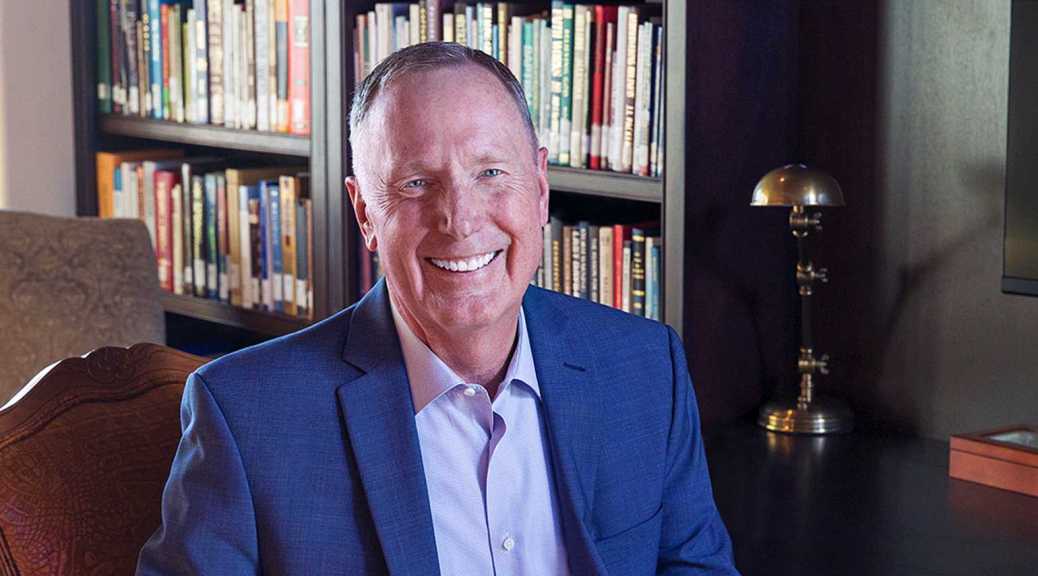Perhaps in reaching middle age, one might expect one’s thoughts to turn toward thinking more about the end of life than the beginning. It certainly seems that each year passes by faster and faster, one season racing into another and before you can blink another year is gone. The 1998 film Meet Joe Black offers a poignant glimpse into this phenomenon. On his 65th birthday, William Parrish’s last night on earth, he gives a speech to those gathered to celebrate his life. With hesitation, he shares what will be some of his last words:
“Every face I see is a memory. It may not be a perfect memory. Sometimes we’ve had our ups and downs, but we’re all together, and you’re mine for a night. And I’m going to break precedence and tell you my one wish: that you would have a life as lucky as mine, where you can wake up one morning and say, ‘I don’t want anything more.’ Sixty-five years…don’t they go by in a blink?”
The years do go by in a blink. Ancient writers and poets often wrote about the transience of our lives, even invoking the Divine to help them remember the brevity of their days: My days are swifter than a weaver’s… Our days on earth are like a shadow… You are just a vapor that appears for a little while and then vanishes away.(1) I was reminded of this during years of service with an aging congregation. There were more funerals than births, baptisms, or weddings. And having to bury those I had just recently befriended would take a great toll.
Despite the many emotional, physical, and spiritual challenges I faced during this time of ministry, I now see that I received incredible gifts. Journeying with someone you love through the dying process reminds you of your own mortality and finitude. The opportunity to deepen emotional reservoirs and to gain an appreciation for the preciousness of life is an invaluable gift.
In his earthly ministry, Jesus said a good deal about this dying journey. Often, he called his followers to self-sacrifice and to single-hearted allegiance by using the language of death. In Luke’s Gospel, he told the great multitudes following him that “if anyone comes to me and does not hate his own father and mother and wife and children and brothers and sisters, yes and even his own life, he cannot be my disciple. Whoever does not carry his own cross and come after me cannot be my disciple.”(2) What is often forgotten in a casual reading of the gospels is that the cross was the instrument of death and disgrace. It was an instrument reserved for the vilest offenders, and as such was an instrument of finality for the lowest of the low. Yet whoever does not carry his own cross and come after me cannot be my disciple. There is no “if” in Jesus’s statement, only whether or not we will accept the invitation to death.
The fact that Jesus issued this kind of invitation to the “multitudes going along with him” should not be lost either. To hear that death is a part of life’s purpose, and that those who would want to follow Jesus should expect nothing less, is a very difficult invitation. Given the choice, most humans wouldn’t sign up for death. We cling to life as tenaciously as a wolf to her prey. I suspect the crowds dissipated after they heard Jesus speak these very difficult statements. Perhaps they were the very ones who later clamored for his death by crucifixion. It was easy to follow Jesus when he focused on the positives.
And yet, as sure as babies are born into this world and new life begins, death is inevitable. Not just physical death, but the “little deaths” we experience every day; the death of dreams, of life’s highest expectations, and the death of wanting more from life than it will offer. Is there any kind of gift given even in these moments of death? Can abundant life be found even as life marches quickly towards decline and decay? Can grace come even as we move towards Calvary with our cross?
In speaking of his own death and the gifts it would yield, Jesus said that “unless a grain of wheat falls into the earth and dies, it remains by itself alone; but if it dies, it bears much fruit. He who loves his life loses it; and he who hates his life in this world shall keep it to life eternal.”(3) In the face of a world that shouts to us to grab all we can now, to find self-fulfillment and be happy, Jesus extends to us the ironic invitation to embrace death in order to truly find our lives. This is both a promising and challenging invitation. Can we really find life out of death? And how is it to be experienced as abundant even in the everyday, ordinary living most of us experience? The challenge Jesus sets before those who would follow is the challenge to “die” to what we think makes for life; it is to choose—in this life that goes by as quickly as a vapor—what would make for life indeed.
Margaret Manning Shull is a member of the speaking and writing team at Ravi Zacharias International Ministries in Bellingham, Washington.
(1) See Psalm 39:4, 1 Chronicles 29:15; James 4:14.
(2) Luke 14:26-27.
(3) John 12:24-25.
http://www.rzim.org/






